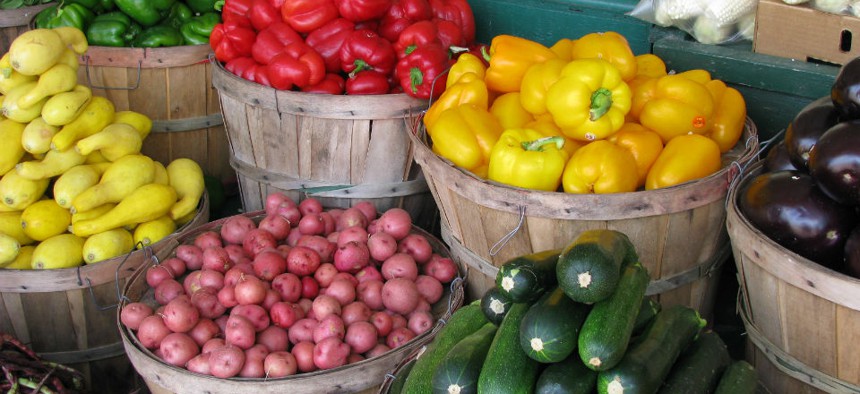
Flickr user NatalieMaynor
It's Still Not That Hard to Defraud the Food Stamp Program
States' manual searches deemed more effective than website tools, watchdog finds.
Detection of improper receipt or trafficking of federal food subsidies being performed by state governments has been hindered by inconsistent data and staff cuts, an audit found.
The Supplemental Nutrition Assistance Program, run by the states under guidance from the Agriculture Department’s Food and Nutrition Service, has long been at risk of fraud in the form of improper requests for replacement electronic benefit cards and account access by prisoners or thieves using the names of deceased individuals.
The study of fraud policing in 11 states released Thursday by the Government Accountability Office faulted state oversight of such tools as fraud hotlines and data matching. “Most of selected states reported difficulties in conducting fraud investigations due to either reduced or maintained staff levels while SNAP recipient numbers greatly increased from fiscal year 2009 through 2013,” said the study, requested by Sen. Jeff Sessions, R-Ala., ranking member of the Budget Committee.
The states are achieving “mixed success,” GAO found, with potential for illicit trafficking in 73 percent of the households that requested excessive replacement SNAP benefit cards.
. “Some state officials suggested changing the financial incentives structure to help support the costs of investigating potential SNAP fraud,” auditors noted. “For example, investigative agencies are not rewarded for cost-effective, anti-fraud efforts which prevent ineligible people from receiving benefits at all.”
The Food and Nutrition Service’s recommended e-commerce website monitoring tool, according to the auditors, is “less effective than manual searches in detecting posts indicative of SNAP trafficking. GAO found the recommended tool for monitoring social media to be impractical due to the volume of irrelevant data.”
Despite enhanced federal oversight in recent years, the report said, states still lack clear and consistent data in such areas as what constitutes a fraud investigation, the report concluded.
GAO recommended that the Food and Nutrition Service reassess financial incentives and detection tools and issue guidance to help states. Agency officials agreed. Some mentioned that while many requests for replacement food stamp cards are legitimate and hence do not merit fraud investigators’ time, “monitoring of replacement card data has an important educational component, as it allows states to identify situations where a recipient requires education on how to use their SNAP” electronic card.
Clarification: This story has been clarified as to where the potential for illicit trafficking is.







